Citroen C4 vs Toyota C-HR - Differences and prices compared
Compare performance (156 HP vs 223 HP), boot space and price (20600 £ vs 29100 £ ) at a glance. Find out which car is the better choice for you – Citroen C4 or Toyota C-HR?
Costs and Efficiency:
Looking at overall running costs, both models reveal some interesting differences in everyday economy.
Citroen C4 has a convincingly advantage in terms of price – it starts at 20600 £ , while the Toyota C-HR costs 29100 £ . That’s a price difference of around 8572 £.
Fuel consumption also shows a difference: Toyota C-HR manages with 0.80 L and is therefore clearly more efficient than the Citroen C4 with 4.70 L. The difference is about 3.90 L per 100 km.
As for electric range, the Citroen C4 performs convincingly better – achieving up to 427 km, about 359 km more than the Toyota C-HR.
Engine and Performance:
Power, torque and acceleration are the classic benchmarks for car enthusiasts – and here, some clear differences start to show.
When it comes to engine power, the Toyota C-HR has a evident edge – offering 223 HP compared to 156 HP. That’s roughly 67 HP more horsepower.
In acceleration from 0 to 100 km/h, the Toyota C-HR is minimal quicker – completing the sprint in 7.40 s, while the Citroen C4 takes 8 s. That’s about 0.60 s faster.
In terms of top speed, the Toyota C-HR performs slightly better – reaching 180 km/h, while the Citroen C4 tops out at 150 km/h. The difference is around 30 km/h.
Space and Everyday Use:
Cabin size, boot volume and payload all play a role in everyday practicality. Here, comfort and flexibility make the difference.
Both vehicles offer seating for 5 people.
In curb weight, Citroen C4 is slight lighter – 1403 kg compared to 1505 kg. The difference is around 102 kg.
In terms of boot space, the Citroen C4 offers to a small extent more room – 510 L compared to 447 L. That’s a difference of about 63 L.
In maximum load capacity, the Citroen C4 performs somewhat better – up to 1360 L, which is about 205 L more than the Toyota C-HR.
When it comes to payload, Toyota C-HR hardly perceptible takes the win – 425 kg compared to 406 kg. That’s a difference of about 19 kg.
Who wins the race in the data check?
The Toyota C-HR is far ahead overall in the objective data comparison.
This result only shows which model scores more points on paper – not which of the two cars feels right for you.
Costs and Consumption
View detailed analysis
Engine and Performance
View detailed analysis
Dimensions and Body
View detailed analysis

Toyota C-HR
Citroen C4
Citroën C4 wears its French eccentricity with confidence, pairing bold, sculpted styling with a supremely comfortable ride that turns mundane commutes into a gentler affair. If you value relaxed comfort, clever practicality and a car with personality rather than pretence, the C4 is a charming, sensible choice — and it won't make you miss the usual hot‑hatch theatrics.
details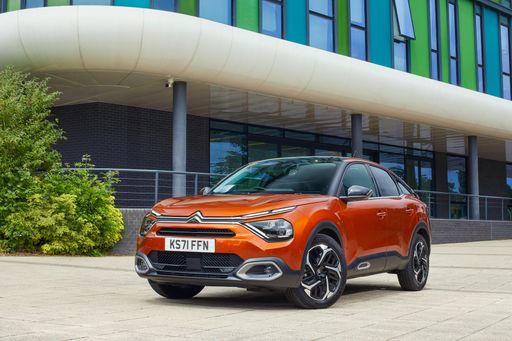
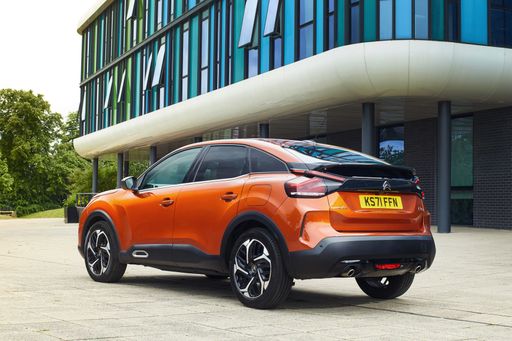
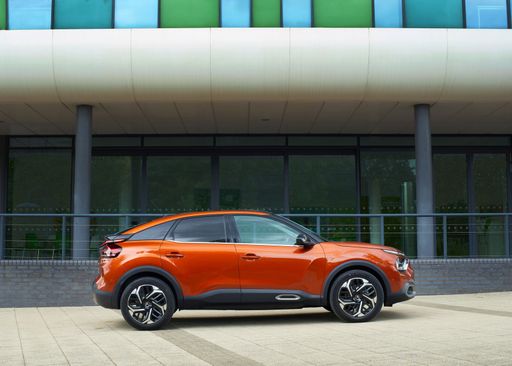
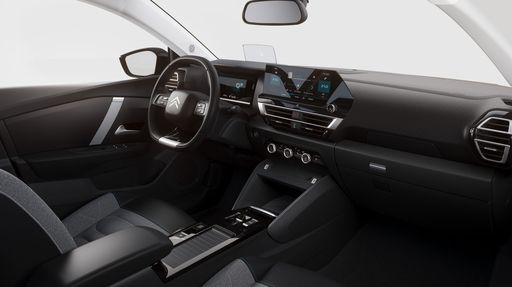
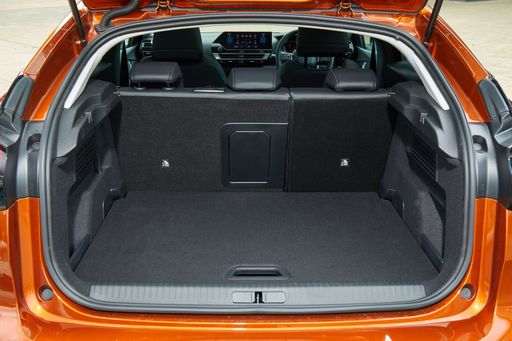
Toyota C-HR
The Toyota C-HR cuts a striking figure with its angular styling and coupe-like profile, so you’ll never go unnoticed in the supermarket car park. It balances everyday practicality with a nimble, city-friendly personality, making routine commutes feel a touch more fun without asking for forgiveness.
details




Costs and Consumption |
|
|---|---|
|
Price
20600 - 32000 £
|
Price
29100 - 42800 £
|
|
Consumption L/100km
4.7 - 4.8 L
|
Consumption L/100km
0.8 - 5.1 L
|
|
Consumption kWh/100km
14.5 - 15.3 kWh
|
Consumption kWh/100km
-
|
|
Electric Range
354 - 427 km
|
Electric Range
68 km
|
|
Battery Capacity
46 - 51 kWh
|
Battery Capacity
-
|
|
co2
0 - 108 g/km
|
co2
17 - 115 g/km
|
|
Fuel tank capacity
-
|
Fuel tank capacity
43 L
|
Dimensions and Body |
|
|---|---|
|
Body Type
SUV
|
Body Type
SUV
|
|
Seats
5
|
Seats
5
|
|
Doors
4 - 5
|
Doors
5
|
|
Curb weight
1403 - 1659 kg
|
Curb weight
1505 - 1755 kg
|
|
Trunk capacity
380 - 510 L
|
Trunk capacity
350 - 447 L
|
|
Length
4350 - 4580 mm
|
Length
4362 mm
|
|
Width
1800 - 1834 mm
|
Width
1832 mm
|
|
Height
1520 - 1525 mm
|
Height
1558 - 1564 mm
|
|
Max trunk capacity
1250 - 1360 L
|
Max trunk capacity
1076 - 1155 L
|
|
Payload
379 - 406 kg
|
Payload
375 - 425 kg
|
Engine and Performance |
|
|---|---|
|
Engine Type
Electric, Petrol MHEV
|
Engine Type
Full Hybrid, Plugin Hybrid
|
|
Transmission
Automatic
|
Transmission
Automatic
|
|
Transmission Detail
Reduction Gearbox, Dual-Clutch Automatic
|
Transmission Detail
CVT
|
|
Drive Type
Front-Wheel Drive
|
Drive Type
Front-Wheel Drive, All-Wheel Drive
|
|
Power HP
110 - 156 HP
|
Power HP
140 - 223 HP
|
|
Acceleration 0-100km/h
8 - 10.8 s
|
Acceleration 0-100km/h
7.4 - 9.9 s
|
|
Max Speed
150 km/h
|
Max Speed
175 - 180 km/h
|
|
Torque
205 - 270 Nm
|
Torque
-
|
|
Number of Cylinders
3
|
Number of Cylinders
4
|
|
Power kW
81 - 115 kW
|
Power kW
103 - 164 kW
|
|
Engine capacity
1199 cm3
|
Engine capacity
1798 - 1987 cm3
|
General |
|
|---|---|
|
Model Year
2025
|
Model Year
2024 - 2025
|
|
CO2 Efficiency Class
A, C
|
CO2 Efficiency Class
C, B
|
|
Brand
Citroen
|
Brand
Toyota
|
What drivetrain options does the Citroen C4 have?
The Citroen C4 is offered with Front-Wheel Drive.
